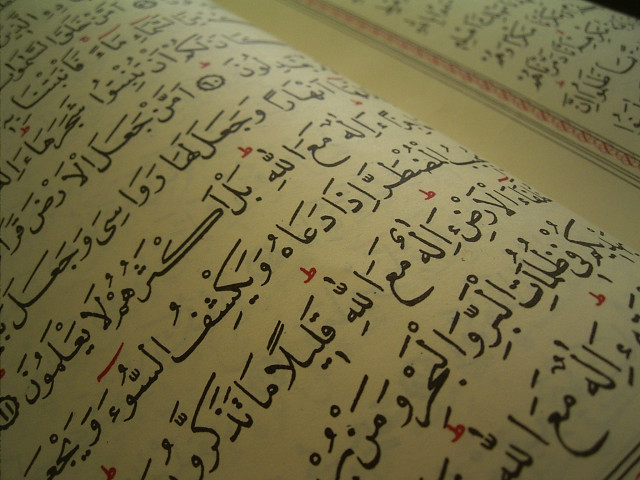Not by the book: Jalandhari says quality of religious education declining
General secretary of Wafaq-ul-Madaris cites Urdu syllabi as primary factor.

General secretary of Wafaq-ul-Madaris cites Urdu syllabi as primary factor. PHOTO: FILE
The largest federation of Islamic seminaries has expressed deep concern over the decline in education standards in seminaries in the country.
Qari Muhammad Hanif Jalandhari, the general secretary of Wafaq-ul-Madaris Al-Arabia, told The Express Tribune that the top leadership of his organisation has noted this deterioration.
“The current educational syllabus is one of the main factors for this situation,” he said, explaining that the old Arabic and Persian language syllabus has gradually been replaced by the Urdu translated syllabus which has negatively affected the quality of education in madrassahs.
“Our senior-most ulema who have been keeping watch on standards are of the view that our education system has become impotent due to the Urdu syllabus.”
According to his assessment, ill-trained teachers are also a factor contributing to the poor quality of education, as they are not taking a keen interest while conducting classes.

“The performance of such teachers is hopeless as compared to those who had produced high-calibre ulema during the last 60 years. The students should also be blamed for such a situation as they lack the required commitment to the learning of Islamic education.”
He also said that students prefer to be enrolled at seminaries where the syllabus is in Urdu, as it is an easier way to earn the title of scholar without having to learn another language.
Many students avoid Arabic- and Persian-language syllabi that are harder to study.
These seminaries are a sharp contrast to other religious schools in Pakistan, which are headed by respected ulema. Preacher Moulana Tariq Jamil has established nine of his seminaries in Multan, Faisalabad, Chiniot, Jhang, Tulamba (district Khanewal) and a few other districts of Punjab, where only Arabic and Persian language syllabi are being taught for the past 10 years.
Students are discouraged from speaking in Urdu as a matter of policy in the Faisalabad-based Madrisatul Hussnain, which has no affiliation with the Wafaq-ul-Madaris.
Exclusively Arabic and Persian language syllabi are also being taught in a large number of seminaries administered directly or indirectly by the Raiwind Tableeghi Markaz. These are also not affiliates of the Wafaq-ul-Madaris.
Jalandhari said that in view of the “alarming situation”, his federation has developed a uniform syllabus for the 18,000 madrassahs in the country.
“Wafaq-ul-Madaris is making an all-out effort to improve the quality of Islamic education in all of its affiliated seminaries, and a few steps have already been taken in that direction,” he concluded.
Published in The Express Tribune, January 21st, 2014.



















COMMENTS
Comments are moderated and generally will be posted if they are on-topic and not abusive.
For more information, please see our Comments FAQ